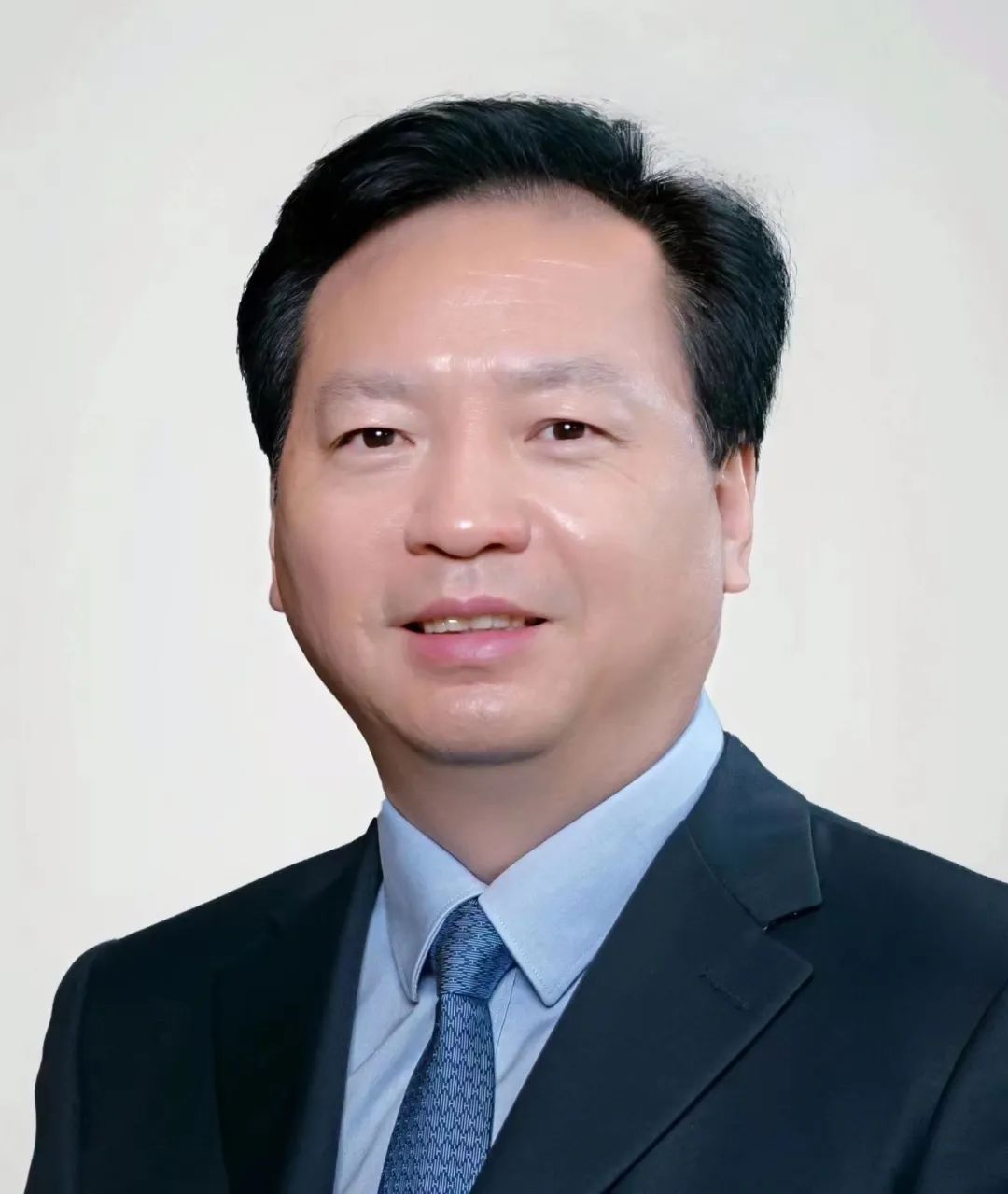The role and place of open surgery in the era of endovascular therapy
Quoted text:Zhao, Jichun. The role and status of open surgery in the era of endovascular endoluminal therapy. Chinese Journal of Basic and Clinical Surgery, 2023, 30(5): 515-516. doi: 10.7507/1007-9424.202304056
Author's Profile

Zhao Jichun
Chief Physician/Professor, Doctoral Supervisor, Director of Vascular Surgery Department of West China Hospital of Sichuan University. Currently, he is the executive director of the Chinese Society of Geriatrics and the president of Peripheral Vascular Disease Management Branch, vice president of the Vascular Surgeons Branch of the Chinese Physicians Association, vice chairman of the Vascular Surgery Committee of the National Committee of Cardiovascular Disease Specialties, vice president of the Asia-Pacific Vascular Academic Alliance, vice president of the International Vascular Federation China, vice president of the Retroperitoneal and Pelvic Floor Disease Committee of the Chinese Research Hospital, member of the academic committee of the National Center for Clinical Research on Radiation and Therapy Clinical Research Center, member of the Academic Committee of the National Center for Radiation and Therapy, member of the Vascular Surgery Group of the Chinese Medical Association, and leader of academics and technology in Sichuan Province. Chairman of the Vascular Surgery Physicians Branch of Sichuan Physicians Association, Chairman of the Vascular Surgery Group of Sichuan Medical Association. He is the deputy editor-in-chief of Chinese Basic and Clinical Journal of General Surgery, Journal of Vascular and Endoluminal Vascular Surgery, Chinese Journal of Vascular Surgery (Electronic Edition), and deputy editor-in-chief of Chinese Journal of Vascular Surgery. He has received national, ministerial and provincial funding, and won three first prizes and one second prize for provincial scientific and technological progress achievements. He has published more than 200 academic papers, including more than 80 SCI papers.
Abstract
Open surgery is an important part of the discipline of vascular surgery. Open surgery is still required for vascular surgical diseases that are not amenable to endoluminal therapy, adjunctive methods of endoluminal therapy and their post-failure treatment, vascular graft infections, open vascular trauma, various tumors involving blood vessels, vascular reconstruction and complications in organ transplantation, and surgical-medical vascular injuries. The author enumerates the important role played by open surgery in vascular surgery in supporting the treatment of vascular-related diseases in surgery and internal medicine and the development of the discipline, and emphasizes that open surgery is still a necessary quality for vascular surgeons, the basis and an important guarantee for the development of the discipline, and the guarantee of timely and effective treatment of various complex and difficult vascular surgical diseases.
With vascular disease becoming the number one cause of death worldwide, there is a growing need for vascular disease treatment. The rapid development of vascular endoluminal therapy has resulted in an increasing number of vascular diseases benefiting from endoluminal treatment. Open surgery, as an important part of the discipline of vascular surgery, is still widely used for: vascular surgical disorders not amenable to endoluminal therapy, adjuncts to endoluminal treatment of the aorta, ruptured aneurysm complications after thoracic aortic endoluminal repair (TEVAR) or endoluminal repair of abdominal aortic aneurysms (EVAR), infections of vascular grafts, post-limb endoluminal therapy complications, open vascular trauma (acute field battle wounds, knife wounds, gunshot wounds, car accident wounds, etc.), various tumors involving blood vessels, organ transplantation vascular reconstruction and complications, and surgical medical vascular injuries. Although endovascular techniques are part of the evolving new technologies in vascular surgery, open vascular surgery still needs to continue to evolve and spread to more disciplines. If open vascular surgery is neglected, there will be a serious lack of both innovation in the development of vascular surgical techniques and in the treatment of a significant portion of vascular surgical diseases and training of vascular surgeons [1-2].
Open vascular surgery has supported the development of various surgical techniques and assisted in the development of various complex surgeries: complex hemangioma excision hemorrhage control and flap transplantation in burns and plastic surgery; repair and reconstruction of various vascular traumas and intraoperative injuries in orthopaedics, and control of intraluminal flow in the abdominal aorta in spinal and pelvic surgeries; resection of tumors involving the blood vessels in general surgery (thyroid gland, breast, abdominal surgery, and organ transplants), intraoperative vascular Hemorrhage treatment and reconstruction of organ transplantation including liver transplantation, pancreas transplantation, small intestine transplantation; pediatric surgery tumor resection involving blood vessels, pediatric liver transplantation; neurosurgery carotid artery and extracranial artery bypass grafting; urology kidney and adrenal gland tumors involving large blood vessels resection, vascular reconstruction of complex renal transplants and management of complications; and other surgical procedures of all kinds of medical vascular injuries on the consultation table. Surgery. Therefore, the development of various surgical disciplines and the application and development of vascular surgical techniques are closely related [3].
Cardiogenic peripheral arterial embolism management and vascular intervention for vascular complications; support for vascular surgical techniques in the construction of regional cardiovascular medicine centers and cardiogenic stroke prevention and control bases; peripheral thrombotic diseases and abnormalities of coagulation mechanisms in the Department of Hematology; immune and inflammatory vascular diseases in the Department of Rheumatology and Immunology; and prevention and control of venous thromboembolism (VTE, including venous thrombosis and pulmonary embolism) in the Department of Respiratory Medicine and technologies to support the acquisition of the first 10 national VTE prevention and control construction base one; geriatric medicine department national geriatric clinical research center construction, initiated the establishment of the Chinese Society of Geriatrics peripheral vascular disease management branch, held a national geriatric vascular disease summit forum every year; nursing vascular access in the PICC catheter and infusion vascular complications treatment, and translated the monographs and released the Chinese expert consensus; in the hospital and various disciplines of support With the support of the hospital and various disciplines, the Department of Vascular Surgery took the lead in establishing the "Vascular Center of West China Hospital" in 2011, which integrates 9 disciplines and lays the foundation for multidisciplinary joint diagnosis and treatment of related complex and difficult vascular diseases.
At present, many young vascular surgeons neglect or cannot do open vascular surgery, which will lead to the related vascular diseases requiring open surgical treatment cannot be effectively treated in time, those who fail endoluminal treatment cannot be rescued, those who fail to carry out auxiliary technology suitable for endoluminal and endoluminal treatment cannot be carried out, those who are unable to deal with open vascular injuries (acute field combat injuries, knife injuries, gunshot wounds, car accident injuries, etc.), and those who have medical origin of vascular injuries from various surgical procedures are difficult to deal with. Difficulty in dealing with various surgical vascular injuries of medical origin, difficulty in surgical resection of tumors involving blood vessels, and difficulty in carrying out organ transplants that require vascular surgical techniques will definitely affect the improvement of surgical techniques and the development of related disciplines. If there is a lack of open vascular surgery technology training among young physicians, it will gradually lose the significance of surgeons, so that the development of other disciplines that require vascular surgery technical support in the treatment of vascular trauma is constrained, especially in general hospitals needing open surgical treatment of patients can only be transferred to hospitals that have the conditions to limit the development of their own technology and disciplines [4].
In summary, open vascular surgery is still an important means of treating vascular surgical diseases and is widely used in various related disciplines to play an important role. In today's booming development of vascular endoluminal technology, open surgery is still a basic quality necessary for vascular surgeons, in the study and mastery of endoluminal technology, at the same time, skillful open surgery is the foundation of the development of the discipline of vascular surgery and an important guarantee, at the same time, is to ensure that all kinds of complex and difficult vascular surgical diseases to obtain timely and effective treatment of the guarantee.


